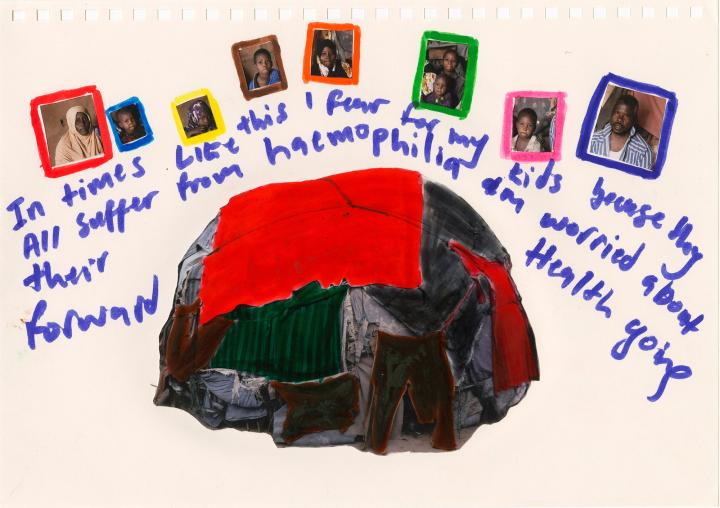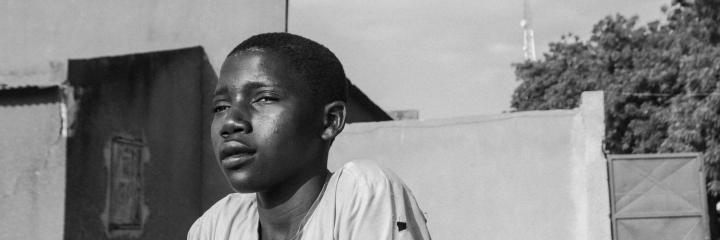
When The Birds Will Fly Again
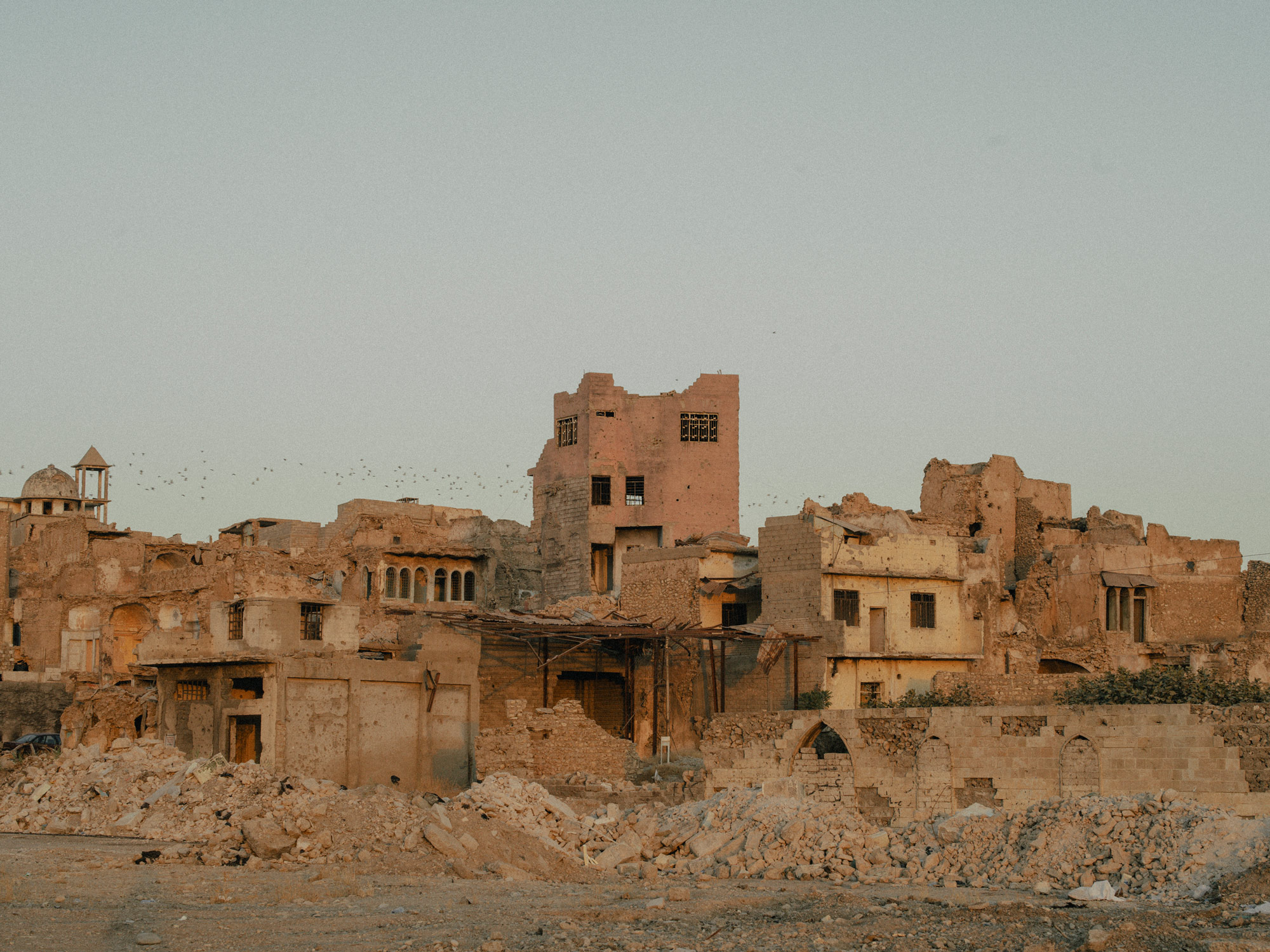
Mosul. 14 September 2021. The Old City of Mosul in ruins. After the conflict, only a few people returned to rebuild their homes.
© Nanna Heitmann / Magnum PhotosIn October 2016, the military offensive to retake the city from the hands of the Islamic State began. After almost three years under the control of the IS, Mosul, once the country's second largest city, had lost most of its population as people fled the control of IS, and the awful living conditions in the city. The offensive lasted nine months; every street and house was visited and secured. As time went on, the front line shifted. With thousands of Iraqis wounded or killed and more than a million displaced, this urban battle remains one of the deadliest since the Second World War. At the height of the battle to retake the city, MSF teams were working in a health post close to the front lines. Since then, life has resumed, but the health system has been slow to rebuild and MSF continues to support several facilities, including the maternity and paediatrics hospital in Nablus, on the outskirts of the city. The number of births per month is reaching record figures. Giving birth through safe deliveries is one of the priorities of the teams, as the risk of maternal mortality in childbirth remains very high.
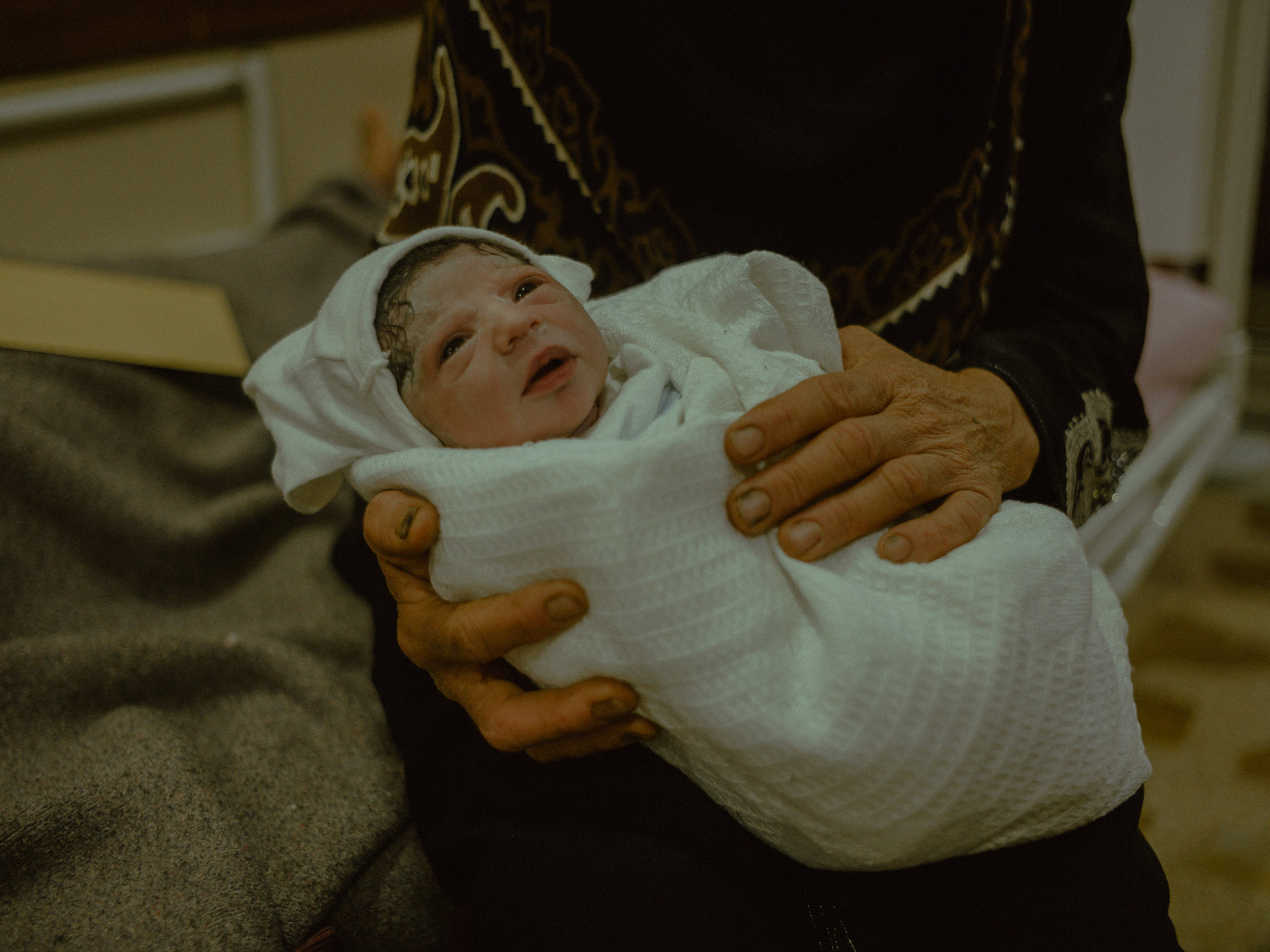
Iraq. Mosul. 17 September 2021. Noor Ibrahim, a newborn, in the arms of his grandmother Shaima at MSF’s Nablus hospital. They came from Rabia, a city on the border with Syria, 120 kilometres from Mosul.
© Nanna Heitmann / Magnum PhotosFour years after the Islamic State group was driven out of Mosul by Iraqi forces and an international coalition, I was assigned to photograph the rebirth of Mosul—in the sense of its reconstruction, but also literally: in MSF’s largest maternity ward, where 850 children are born every month.
In June 2014, an estimated 1,500 fighters of the Islamic State of Iraq and Syria seized control of Mosul, Iraq’s second largest city. For three years residents lived in fear of punishment according to the group's extreme interpretation of Islamic law. Women had to be fully covered up in black, head to toe; minorities were persecuted, and public executions, arrests, and torture were a part of daily life. Most women I encountered spent all those years locked in their homes, unable to study or even leave their houses without being accompanied by a male member of their family. But there were also people, such as the midwife Kazal of MSF Nablus hospital, who had to work every single day, helping to deliver babies. Her son drove her to work every day at a public hospital; later, when the shooting got closer, women would come to her home to give birth. When I asked about her daughters, she said they were housewives, they wanted to marry early and their husbands forbade them to study once they were married. She then looked determinedly at her niece and said she would never allow her to marry until she became a midwife, just like Kazal. Kazal told me how at first most people welcomed ISIS; they were building streets, treating citizens nicely. Only as the months went on did they slowly force men to grow their beards, and women to cover completely in black. It got to the point where girls would be executed just for wearing brown instead of black socks.
In December 2016 the Battle of Mosul started. It was only in June 2017 that the western part of the city was liberated. The Old City of Mosul in particular presented a complicated battlefield due to its narrow streets, where no tanks could fit. On my first day in Mosul in 2021, my fixer Sangar Khaleel took me to what was left of the once beautiful, historic city. As we climbed and stumbled through the ruins, we kept coming across human bones and the remains of explosive belts. I noticed how my knees inevitably became shaky and my heartbeat stronger. While Sangar was on the phone, I was about to enter a destroyed house until I heard Sangar running after me. At the entrance to the house, an inscription in Arabic warned of mines that might not yet have been cleared.
The people’s stories from the war and the amount of destruction I saw only allows me to quietly guess at the horrors the people here must have experienced, and I felt helpless trying to tell their story. I would never be able to fully understand or imagine it, as a foreigner who had never worked in the Middle East.
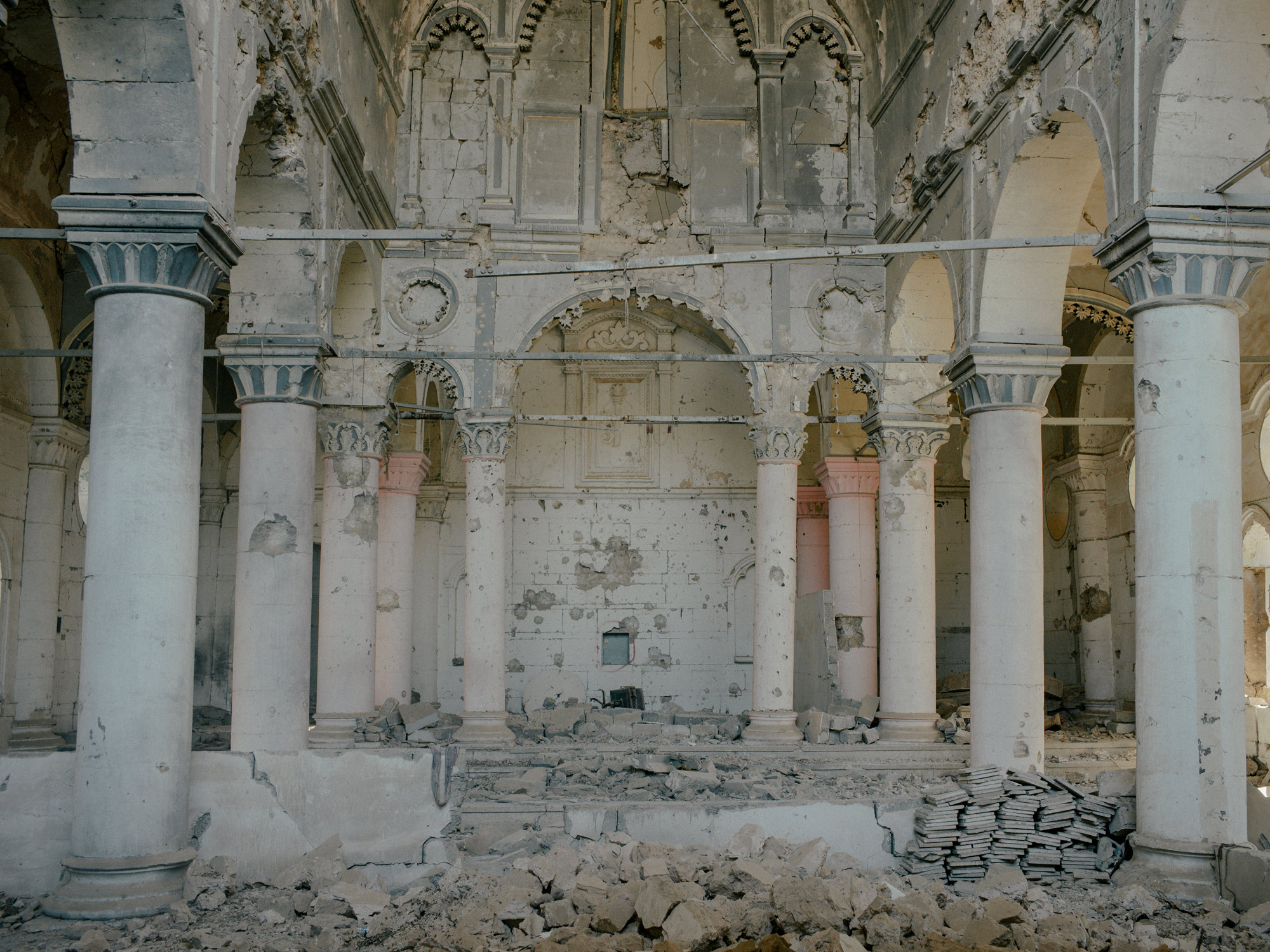
September 2021. The ruins of Al-Tahira church, destroyed during the conflict. In 2017, UNESCO implemented a programme to reconstruct the cultural heritage of the city.
© Nanna Heitmann / Magnum Photos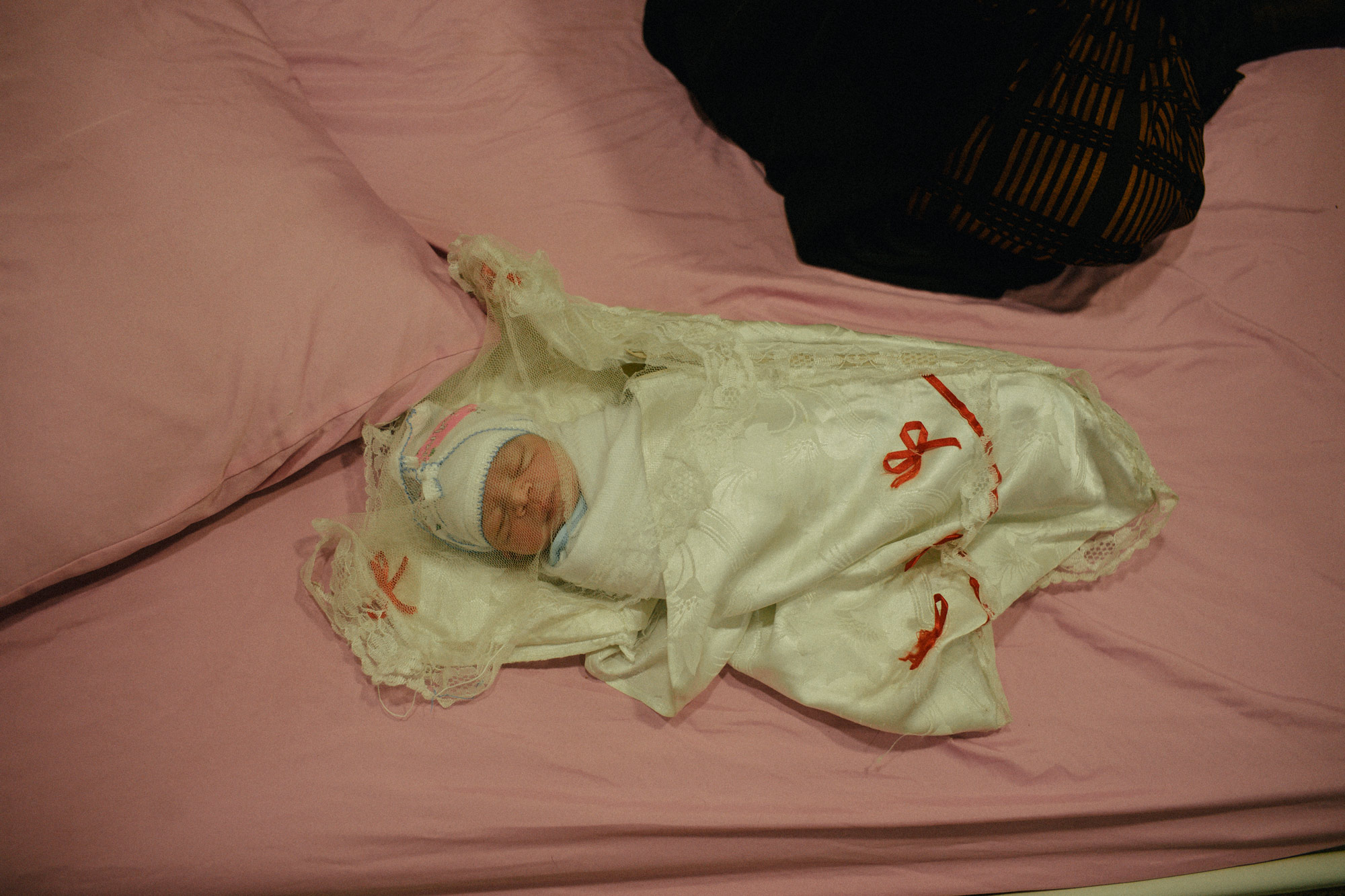
Iraq. Mosul. 17 September 2021. Newborn at MSF Nablus hospital.
© Nanna Heitmann / Magnum PhotosAt the MSF Nablus hospital, on the outskirts of west Mosul, I thought I would photograph a positive story of “rebirth”: Mosul coming back to life after so much grief and loss. But that first day I encountered many women who had experienced miscarriages, and women who felt too weak and drained to talk. I met Lana, a psychologist from Lebanon. She was impressed by the women’s resilience but explained that the rates of postnatal depression, impulsive behaviours and self-harm were extremely high. “My only hopes are for the next generation. People are highly traumatised here because of ISIS, and ISIS has increased rates of aggression in society. Men are used to aggression, they are used to violence. ISIS was modelling this kind of behaviour, this domestic violence, and it changed people’s mindset.” She often raised the term “emotional blindness”. People were under attack for three years. According to Lana they reached a place where they could not feel anything anymore. They became emotionally blind. This was a coping mechanism, helping them to survive the cruelty of war. But even when the threat wasn’t there anymore, the coping mechanism stayed with them. Emotions had not really been processed. Her hope lay in future generations, because the current generation had been too severely traumatised to heal: personality disorders were extremely common.
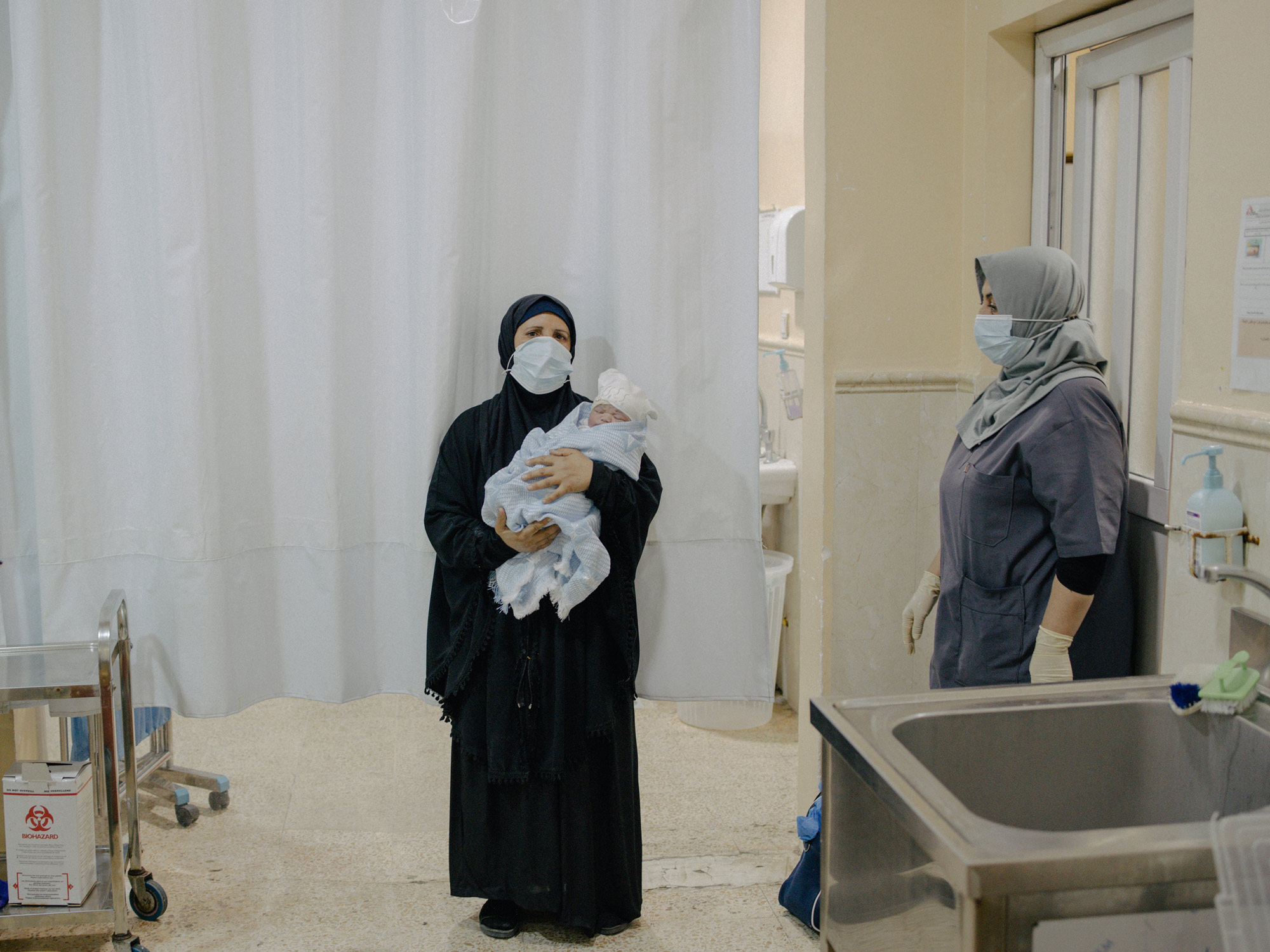
Mosul. 15 September 2021. In the maternity ward of MSF’s Nablus hospital, a woman holds her grandson.
© Nanna Heitmann / Magnum Photos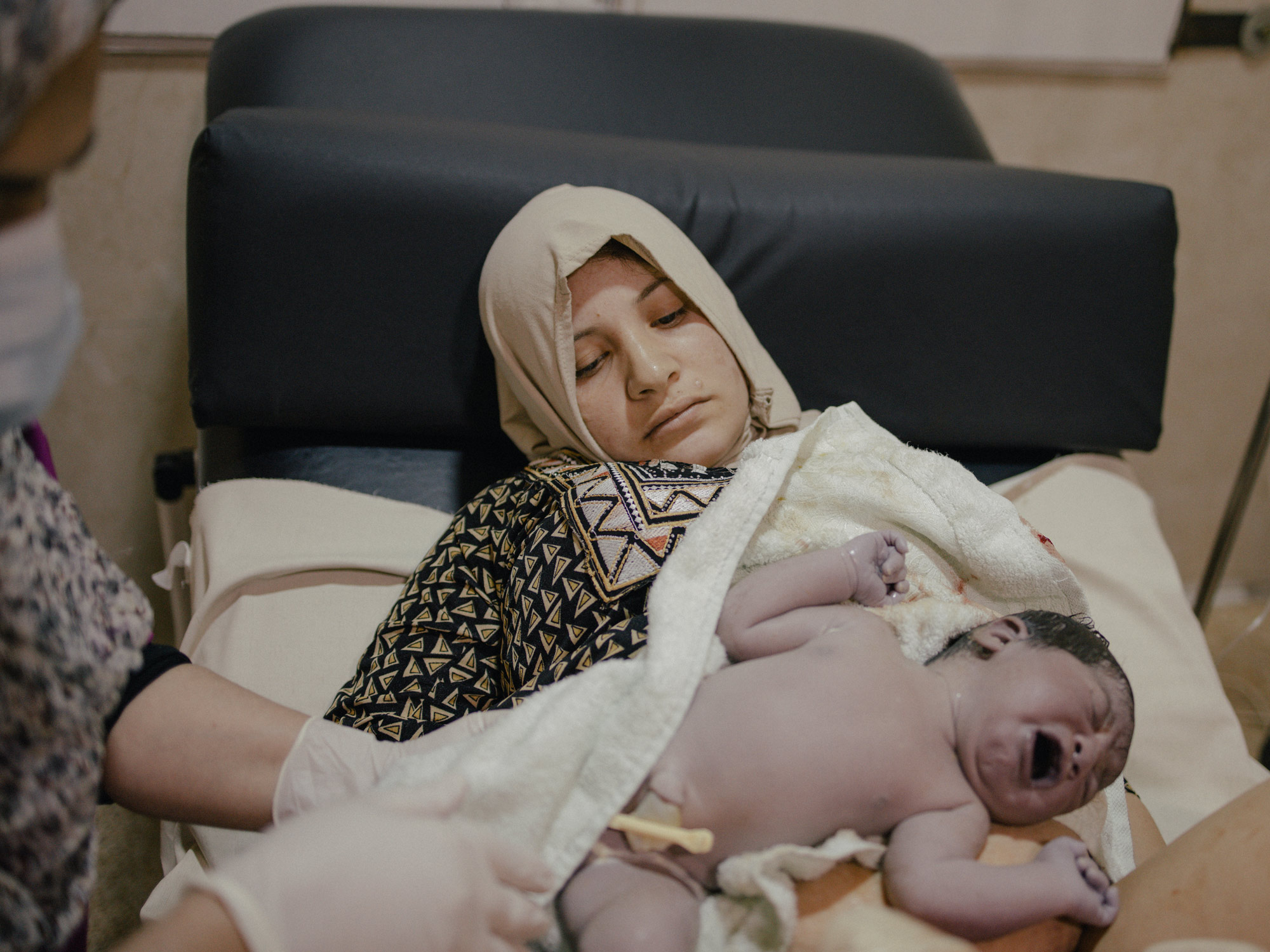
Iraq. Mosul. 15 September 2021. Newborn at Nablus Maternity Hospital.
© Nanna Heitmann / Magnum Photos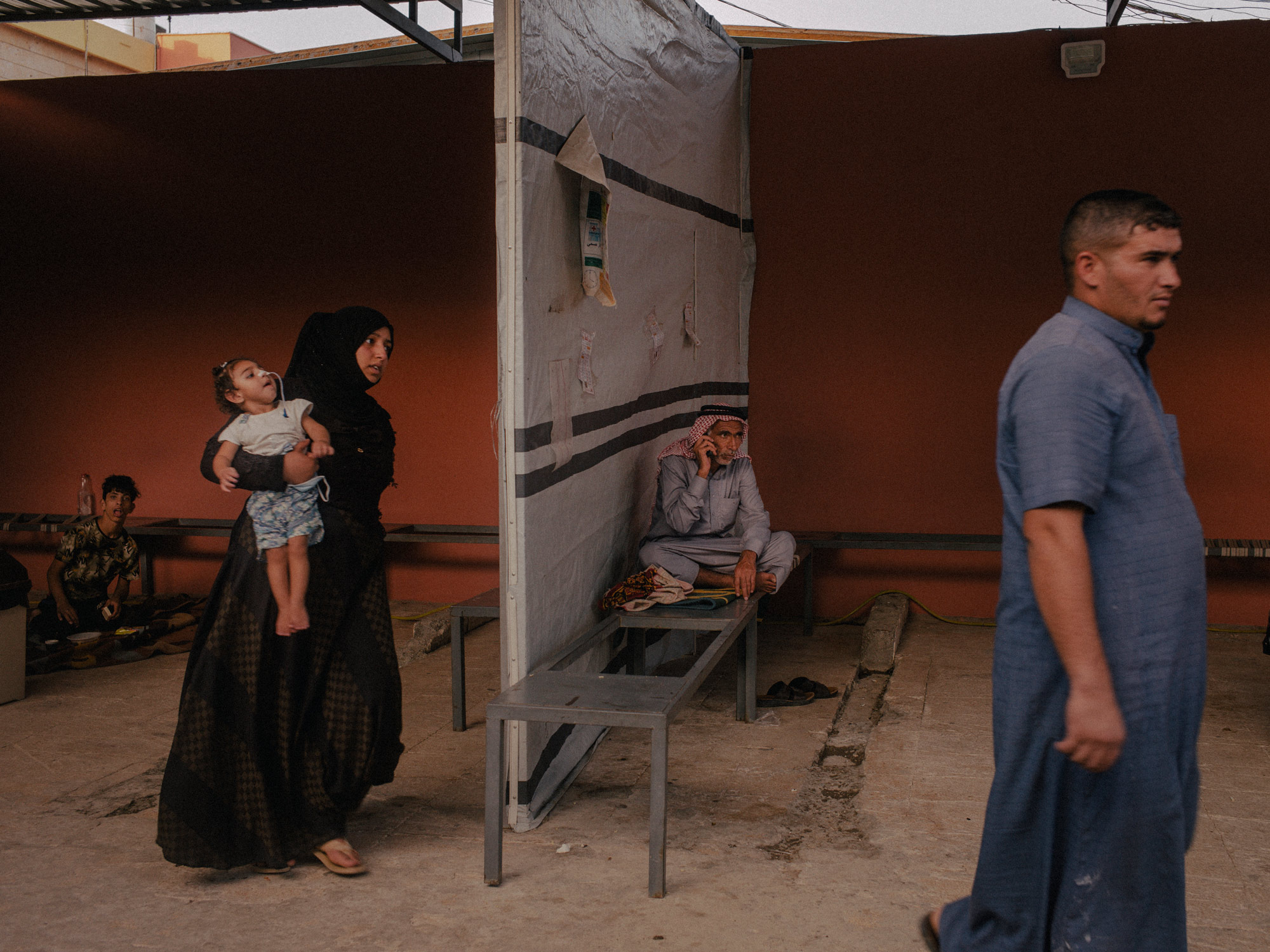
Iraq. Mosul. 17 September 2021. In the waiting room of MSF’s Nablus hospital.
© Nanna Heitmann / Magnum Photos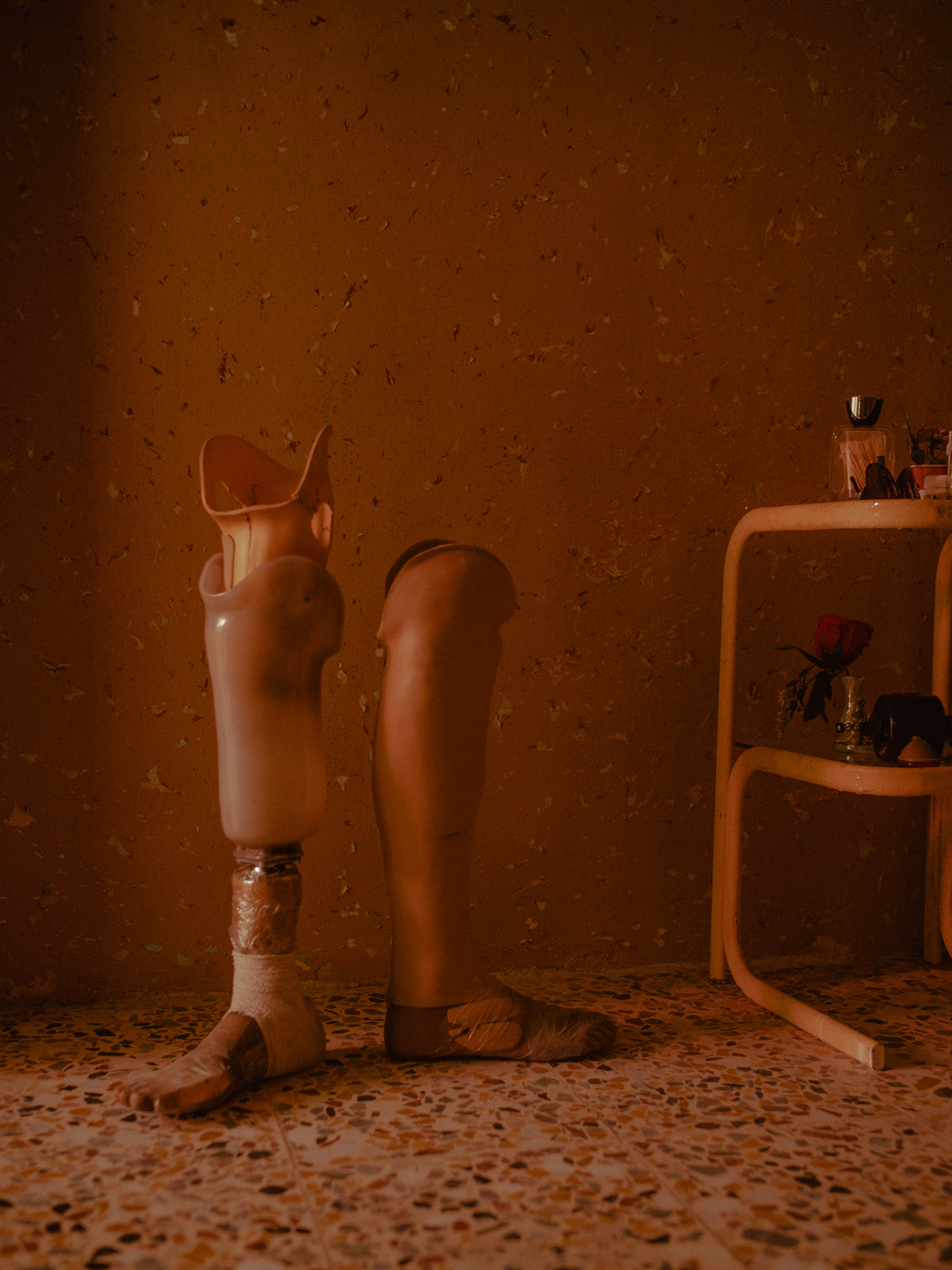
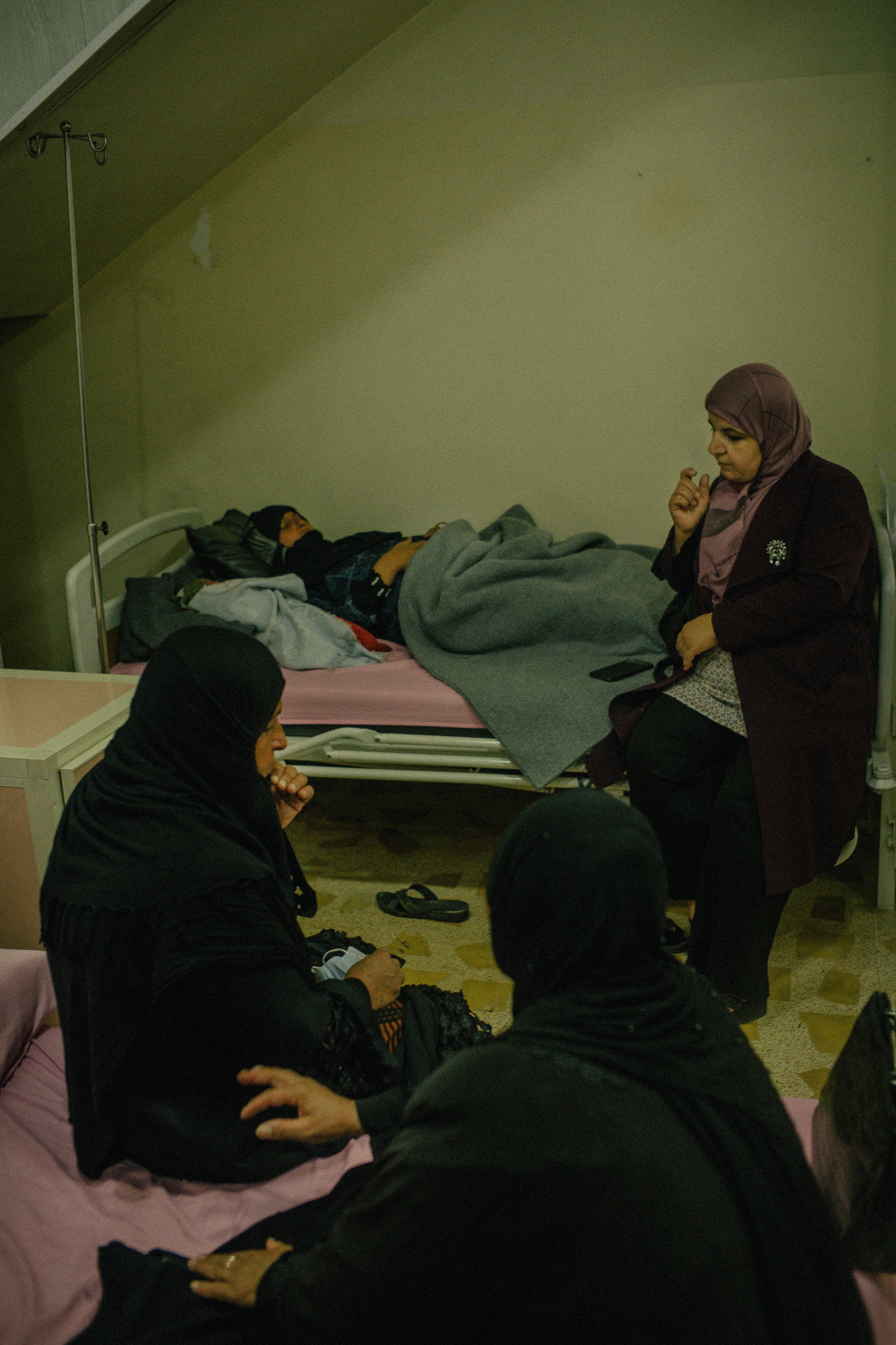
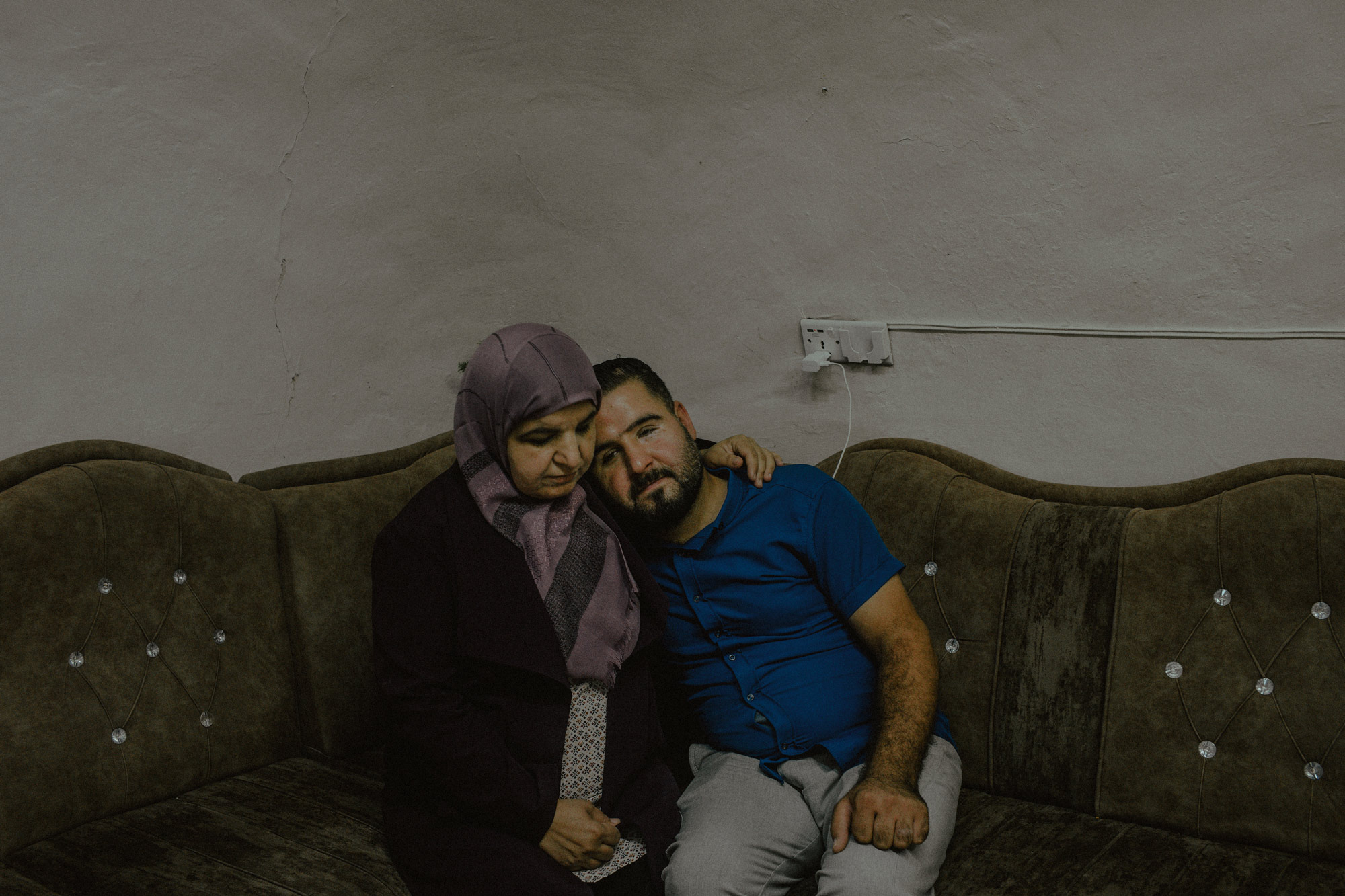
Kazal together with her son in her house. She is a midwife at MSF’s Nablus hospital. ISIS forced her to work during war. Her son would drive her to work every day.
© Nanna Heitmann / Magnum Photos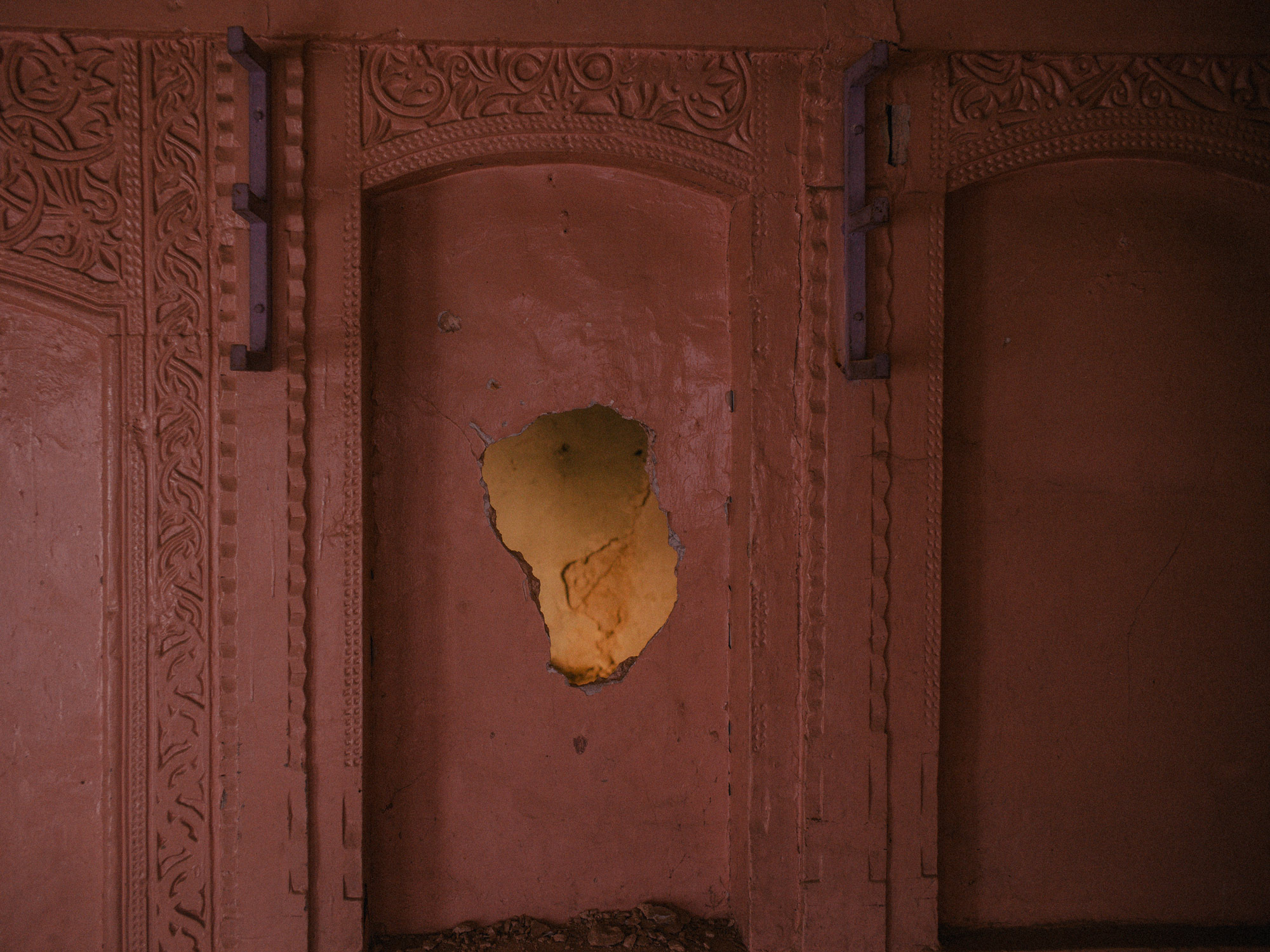
Iraq. Mosul. 13 September 2021. Ruins in the Old City of Mosul.
© Nanna Heitmann / Magnum Photos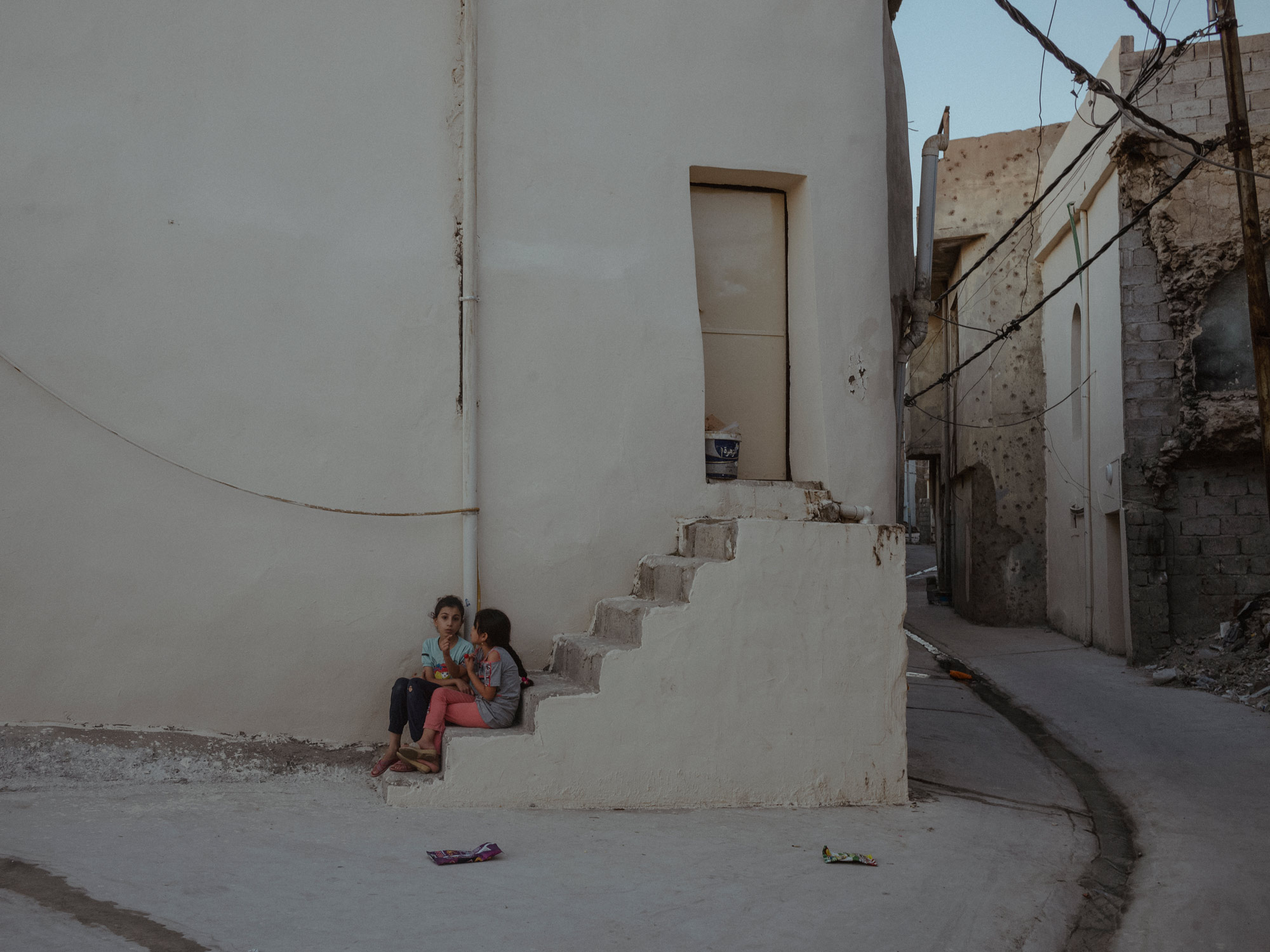
Iraq. Mosul. 17 September 2021.
© Nanna Heitmann / Magnum PhotosAt the same time, it was election campaign time in Iraq. After waiting for more than an hour in a busy office of her party, we met Basma Baseem, who had been the first Iraqi woman to become head of the city consul in Mosul, only three months before IS took over the city and established their caliphate. Even before IS she had survived bombs that were attached to her car and had received dozens of threats. IS took all her belongings when she fled to Kurdistan, but by the time we visited, she said she felt safe to move around Mosul by herself.
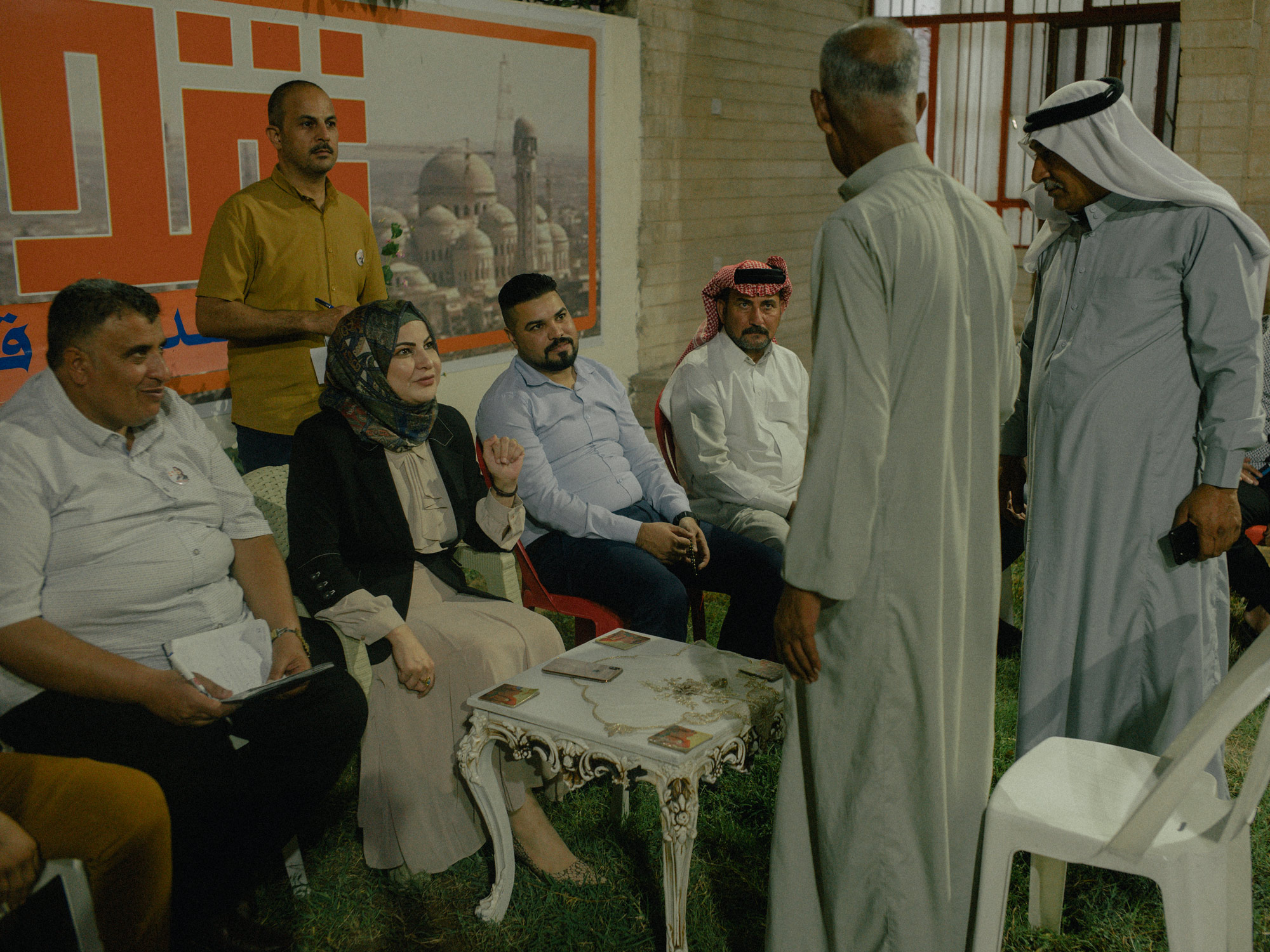
Iraq. Mosul.17 September 2021. Politician Basma Baseem at her election campaign. She was the first Iraqi woman to become head of the Council of Judges just three months before ISIS occupied Mosul. She received a lot of threats and car bomb attacks, and her house was destroyed by ISIS. She managed to flee to Erbil. Today she feels very safe in Mosul, even though she still regularly receives threats.
© Nanna Heitmann / Magnum PhotosIn the garden of her office, men, young and old, many dressed in traditional tribal clothes, came to see and speak with Basma and to seek help. Sitting together in a circle they asked questions and discussed the problem of high unemployment in their neighbourhoods and the lack of prospects.
Basma’s biggest worry was the families and children of ISIS fighters left behind, who, she said, were a time bomb.
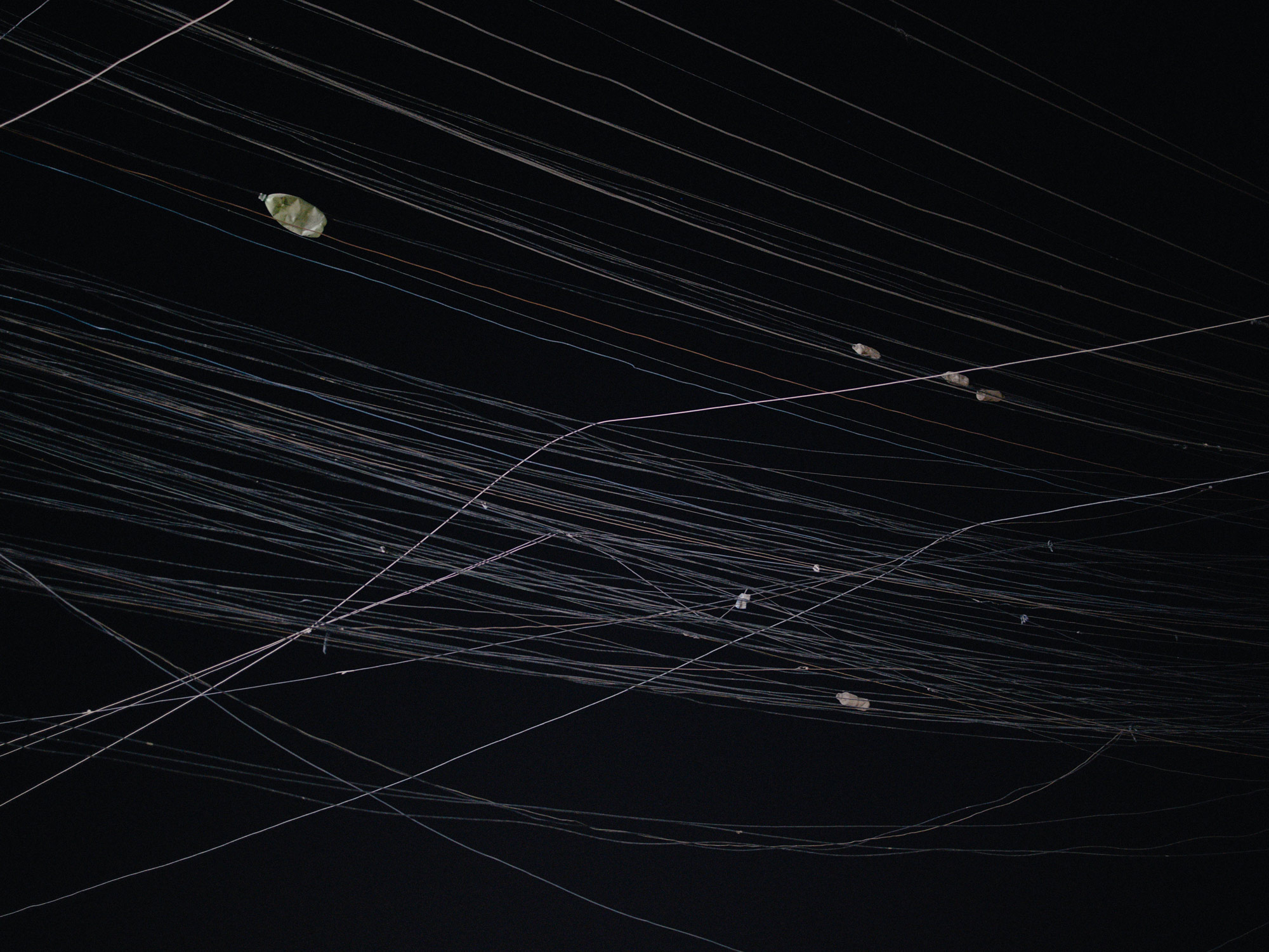
Iraq. Mosul. 15 September 2021. Electricity lines at the entrance of MSF’s Nablus hospital.
© Nanna Heitmann / Magnum Photos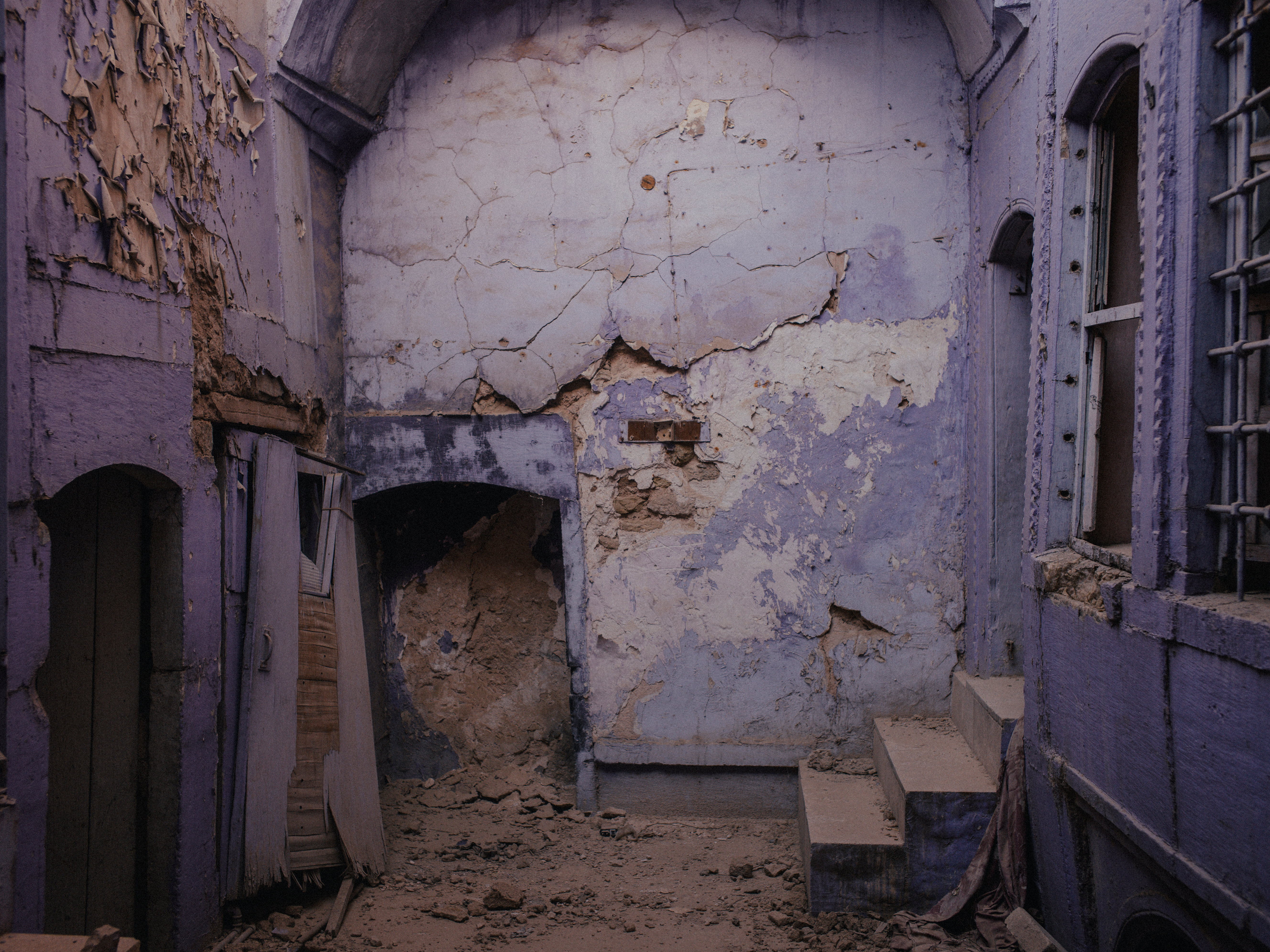
Iraq. Mosul. 13 September 2021. Ruins in the Old City of Mosul.
© Nanna Heitmann / Magnum Photos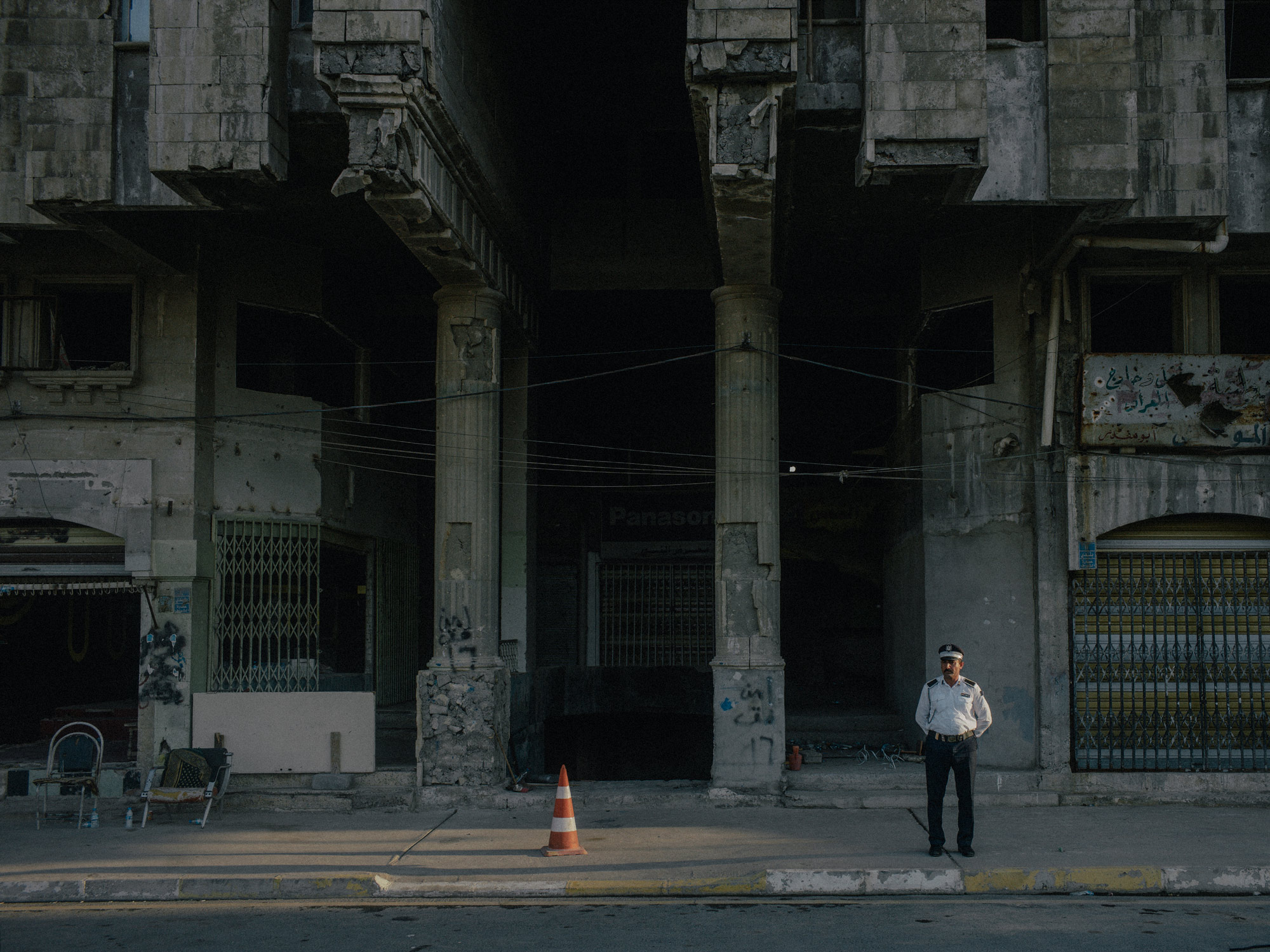
Iraq. Mosul. 13 September 2021.
© Nanna Heitmann / Magnum Photos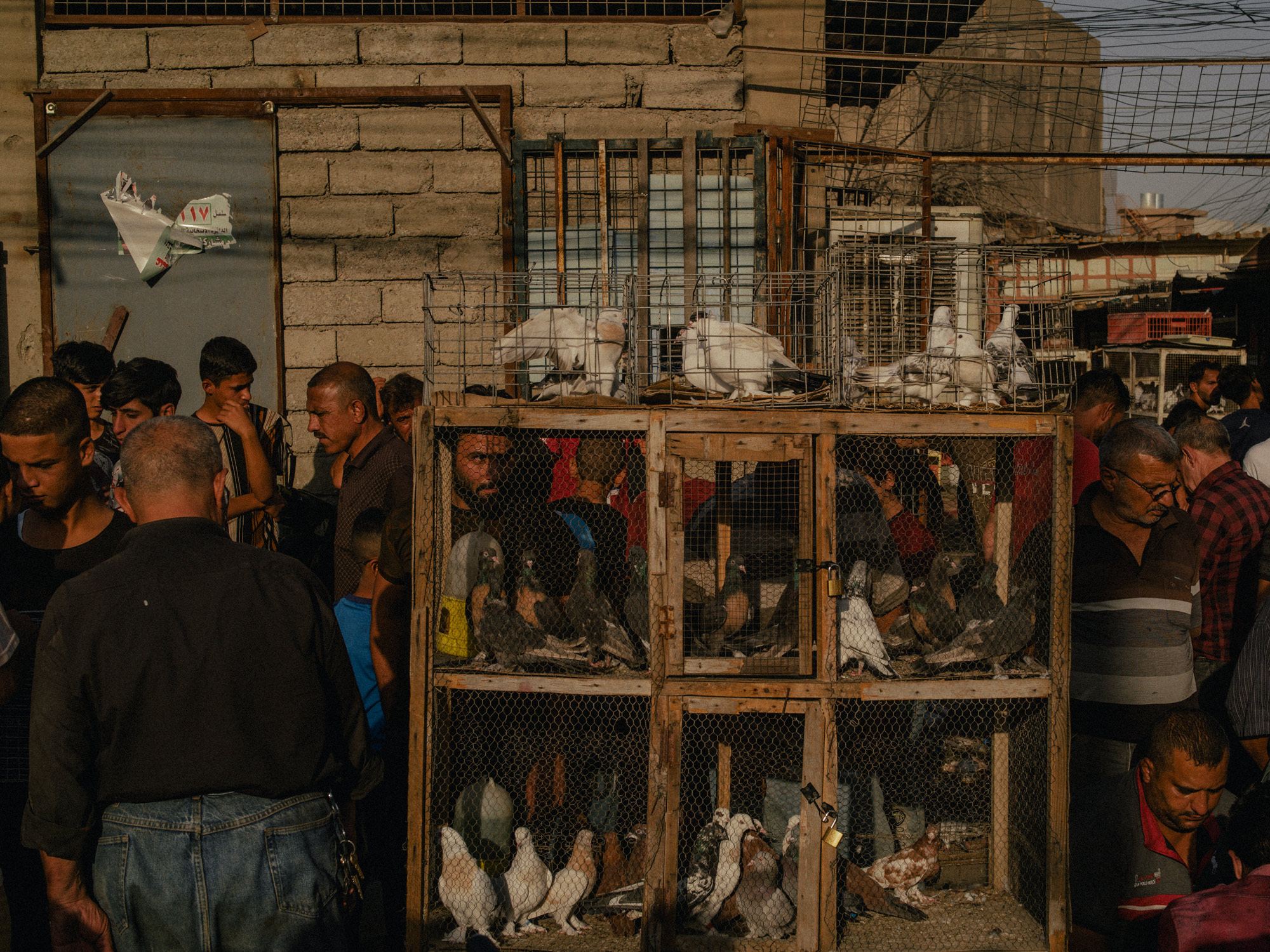
Iraq. Mosul. 16 September 2021. Bab al-Jadid bird market. When the city was under the control of Islamic State, it was forbidden to fly pigeons - a popular pastime.
© Nanna Heitmann / Magnum Photos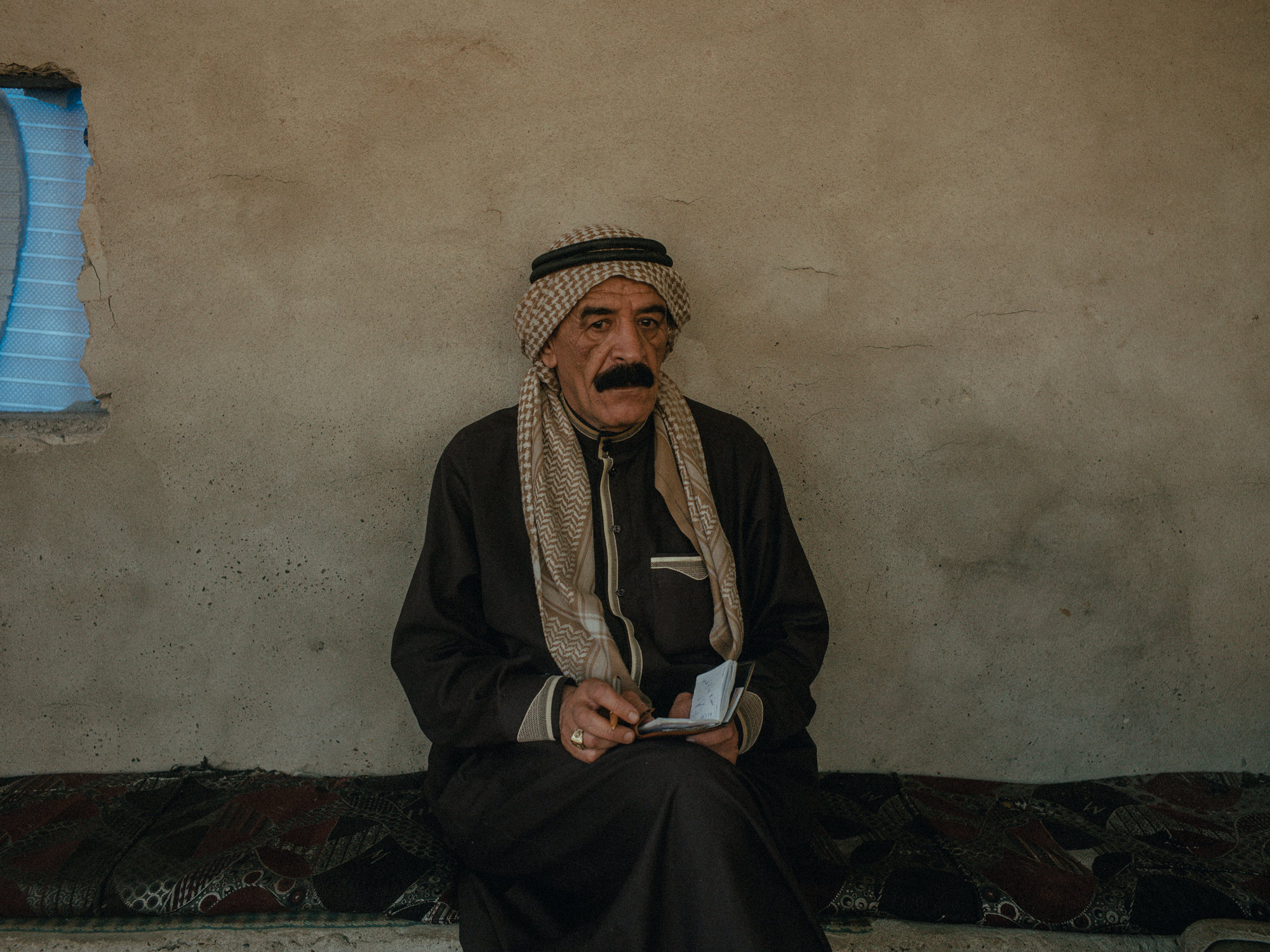
Iraq. Mosul. 16 September 2021. Pigeon breeder Sail Aboud Mhedi at the pigeon market. Under ISIS it was forbidden to let pigeons fly, because of spying or smuggling. Sail loves pigeons and the races.
© Nanna Heitmann / Magnum Photos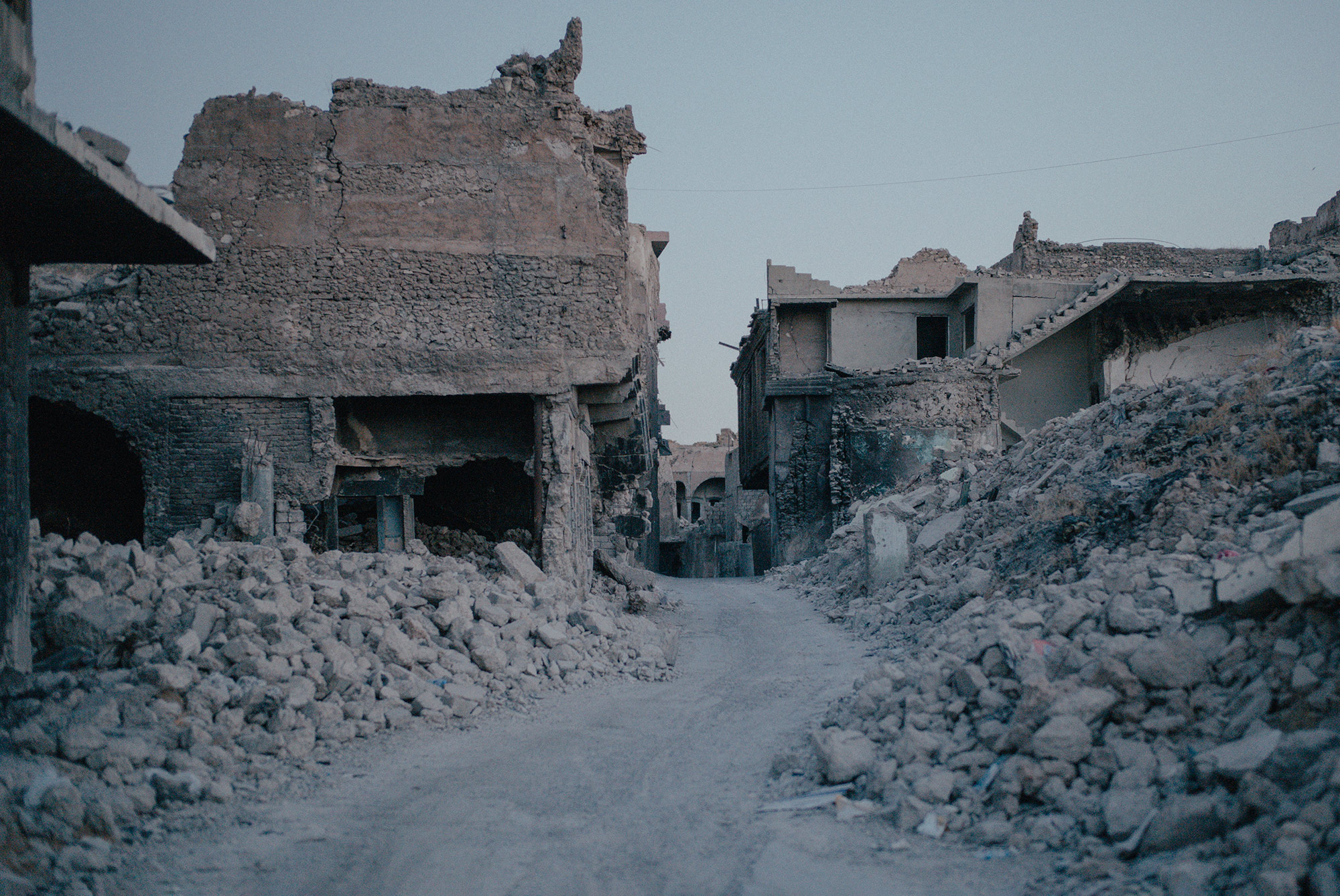
Iraq. Mosul. 16 September 2021. The Old City of Mosul in ruins. After the conflict, only a few people returned to rebuild their homes.
© Nanna Heitmann / Magnum PhotosIn Qaraqosh, an Assyrian Christian town close by, the horrors of war and persecution felt almost forgotten. Only the number of empty houses, between renovated houses, served as a reminder of how many people didn't dare return home but left for other countries. In the evening, more than 4,000 people gathered together; women, men and girls dancing exuberantly together at the Feast of the Glorious Cross. Sangar tapped happily to the songs with a beer in his hand, saying he had never seen so many people mixed together, partying, anywhere in Iraq. Later, the Iraqi singer Adnan Al Rassam performed a song about marriage: “Girls don't believe that marriage is a joyful thing. The first week you are at home and it's pure happiness. The second week you are just like apples and sugar. You are so spoiled in the second week. Third week you are on the ground like a broom, cleaning everything. Fourth week with your mother-in-law starts the fighting. Fifth week you are going to your father’s house because you are angry at your husband and his family. Sixth week you are at the court, always there, for the divorce process. Seventh week you are divorced and you are so happy. Girls don’t believe anyone who tells you getting married is good.” It seemed to be familiar to everyone, and people clapped and laughed together.


Today, life in Mosul remains hard; the traumas run deep. However, Mosulis, like Assia, a mother who came to give birth to Rahma on the maternity ward of Nablus Hospital, share her hopes: "I hope that things will improve in Mosul and in Iraq, and with the help and efforts of all the inhabitants, we will rebuild the city. Mosul will be reborn!” Like a patient slowly recovering his functions and abilities, Mosul and its people are learning to walk again. The cries of pain are slowly turning into the cries of newborn children. Changes that timidly tell of Mosul's convalescence and healing, one day.
Latest photo-reportages

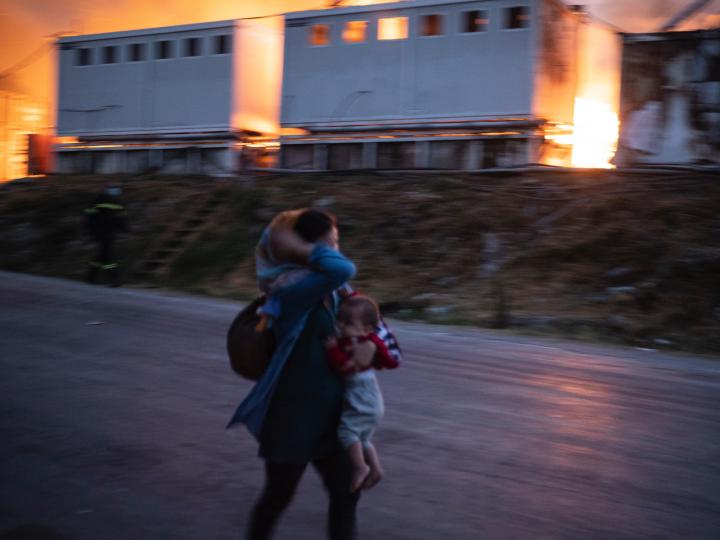
Greece: Trapped in island camps by Enri Canaj, 2020
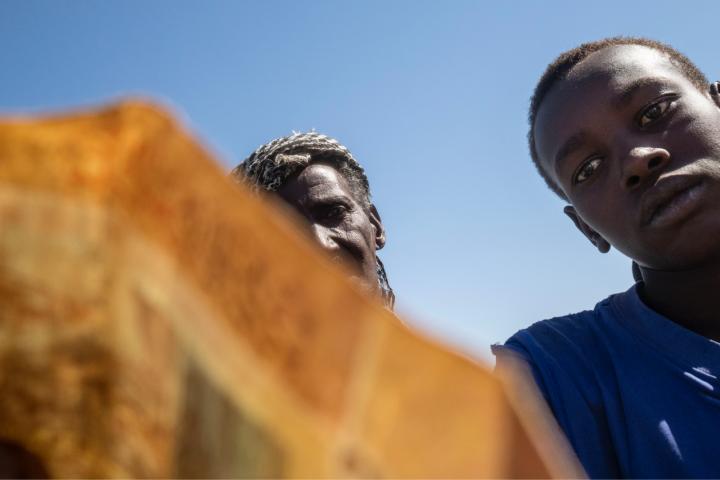
Sudan: Refugees at the border by Thomas Dworzak, 2020
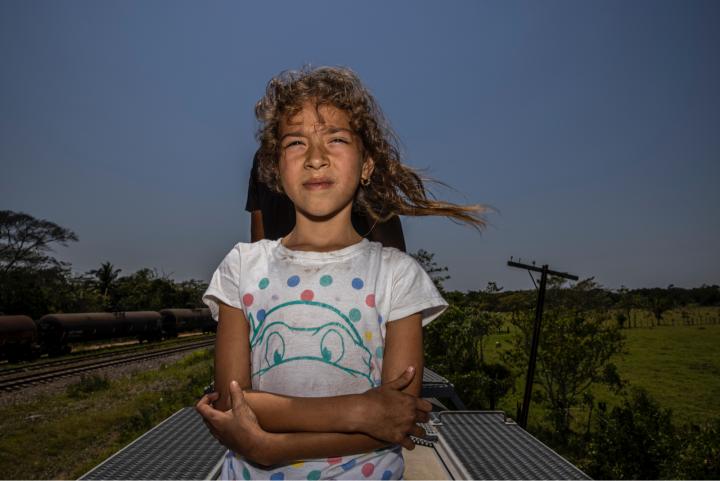
Honduras and Mexico – looking for hope at the end of the road by Yael Martínez, 2021
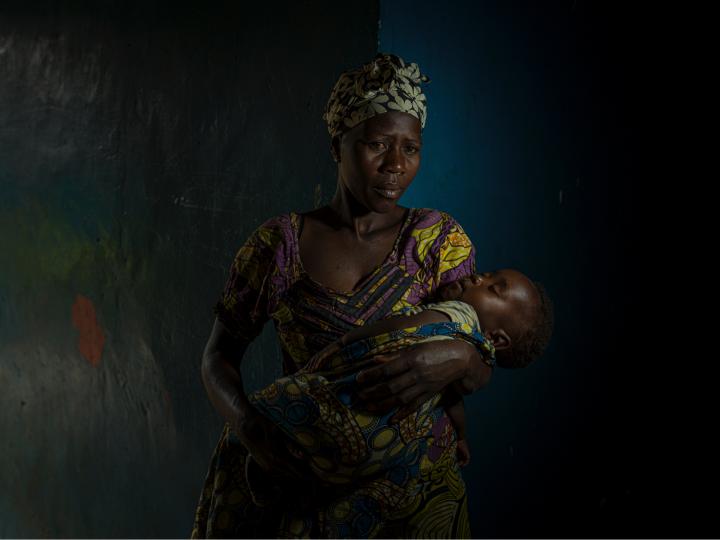
Ituri, a Glimmer through the Crack by Newsha Tavakolian, 2021
